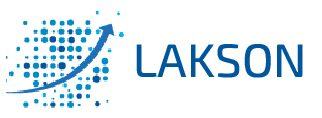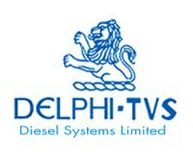Case Studies – Manufacturing
Document Management System and Process Automation
LAKSON Technology has effectively implemented a Document Management System (DMS) combined with process automation to streamline operations for clients. This innovative approach enables efficient document handling, storage, and retrieval, significantly reducing manual processes and the risk of errors.
Products Deployed
:
OmniScan and OmniDocs for efficient document digitization and management.
Processes Implemented
:
HR, Legal and Secretarial, Engineering and R&D, and Accounts Payable processes were streamlined through Digital Transformation.
Key Initiatives
:
Digitisation of Legacy Records to eliminate paper-based workflows and improve accessibility.
Total Users
:
35 users actively engaged with the system.
Physical Document Movement
:
Reliance on manual document transfers across locations led to inefficiencies.
Lack of Monitoring
:
There was no mechanism to track and monitor document flow.
Need for a Document Management System (DMS)
:
A robust DMS was essential to improve operational efficiency and reduce costs.
40% Reduction in Headcount
:
Automation and process improvements led to a significant reduction in manual labour, optimizing resource utilisation.
80% Reduction in Paperwork
:
Digitisation of records and streamlined workflows drastically cut down on paper-based processes.
50% Reduction in Disbursement Cycle
:
Faster and more efficient processes shortened the disbursement cycle by half.
Centralised Accounts Payable Operations
:
All accounts payable processes were centralised, improving coordination and visibility.
100% Supplier Satisfaction
:
Enhanced efficiency led to seamless interactions with suppliers, achieving satisfaction.
100% Compliance with SOX Requirements
:
Implemented solutions to ensure full compliance with SOX, improving audit readiness and financial transparency.
Products Deployed:
OmniScan and OmniDocs for efficient document digitization and management.
Processes Implemented:
HR, Legal and Secretarial, Engineering and R&D, and Accounts Payable processes were streamlined through Digital Transformation.
Key Initiatives:
Digitisation of Legacy Records to eliminate paper-based workflows and improve accessibility.
Total Users:
35 users actively engaged with the system.
Physical Document Movement:
Reliance on manual document transfers across locations led to inefficiencies.
Lack of Monitoring: There was no mechanism to track and monitor document flow.
Need for a Document Management System (DMS):
A robust DMS was essential to improve operational efficiency and reduce costs.
40% Reduction in Headcount: Automation and process improvements led to a significant reduction in manual labour, optimizing resource utilisation.
80% Reduction in Paperwork: Digitisation of records and streamlined workflows drastically cut down on paper-based processes.
50% Reduction in Disbursement Cycle: Faster and more efficient processes shortened the disbursement cycle by half.
Centralised Accounts Payable Operations: All accounts payable processes were centralised, improving coordination and visibility.
100% Supplier Satisfaction: Enhanced efficiency led to seamless interactions with suppliers, achieving satisfaction.
100% Compliance with SOX Requirements: Implemented solutions to ensure full compliance with SOX, improving audit readiness and financial transparency.
Delphi-TVS is a strategic joint venture between Delphi Corporation, USA, the world’s largest automotive supplier, and T.V. Sundaram Iyengar & Sons, India, the leading automotive systems supplier in India. The company specializes in manufacturing Diesel Fuel Injection Equipment for a wide range of vehicles, including cars, SUVs, MUVs, LCVs, tractors, and single & two-cylinder engines, serving both domestic and international markets.
Inefficient Invoice Processing
:
The company struggled to manage their paper-based documents, especially in invoice processing, leading to slow and error-prone workflows.
Outdated Document Collaboration
:
The legacy method of document handling made it difficult to find, manage, share, and secure critical information across the organisation, affecting operational efficiency.
Need for Centralisation
:
The team aimed to establish a Shared Services Center, bringing all accounts payable processes and teams to a centralised location for improved coordination and streamlined operations.
Automating Accounts Payable
:
We implemented Newgen for automated data capture, eliminating manual entry errors and improving invoice processing speed.
Replacing Ineffective Systems
:
The outdated and ineffective AP-SAP system was replaced with a staging table concept, significantly improving efficiency and reducing errors in processing payments.
Centralised Collaboration
:
We replaced unstructured shared files and folders with a centralised BPM solution for secure collaboration, ensuring audit trails and workflow approvals. This improved document management, reducing time wasted on searching and preventing file duplication or loss.
Improved Accuracy to 99.8%
:
Automation and structured processes significantly increased accuracy in invoice processing.
Reduction in Processing Time
:
A week’s worth of invoice processing was reduced to just 1 day, improving operational efficiency.
High-Volume Processing
:
With only 4 team members, the organization was able to process 8,000 invoices per day, showcasing a dramatic increase in productivity.
100% Process Transparency
:
The centralised BPM solution provided full visibility into the process, ensuring complete transparency and accountability across all stages.
Inefficient Invoice Processing:
The company struggled to manage their paper-based documents, especially in invoice processing, leading to slow and error-prone workflows.
Outdated Document Collaboration:
The legacy method of document handling made it difficult to find, manage, share, and secure critical information across the organisation, affecting operational efficiency.
Need for Centralisation:
The team aimed to establish a Shared Services Center, bringing all accounts payable processes and teams to a centralised location for improved coordination and streamlined operations.
Lakson Technology addressed Delphi-TVS’s challenges by automating and streamlining their accounts payable processes.
Automating Accounts Payable:
We implemented Newgen for automated data capture, eliminating manual entry errors and improving invoice processing speed.
Replacing Ineffective Systems:
The outdated and ineffective AP-SAP system was replaced with a staging table concept, significantly improving efficiency and reducing errors in processing payments.
Centralised Collaboration:
We replaced unstructured shared files and folders with a centralised BPM solution for secure collaboration, ensuring audit trails and workflow approvals. This improved document management, reducing time wasted on searching and preventing file duplication or loss.
Improved Accuracy to 99.8%:Automation and structured processes significantly increased accuracy in invoice processing.
Reduction in Processing Time: A week’s worth of invoice processing was reduced to just 1 day, improving operational efficiency.
High-Volume Processing: With only 4 team members, the organization was able to process 8,000 invoices per day, showcasing a dramatic increase in productivity.
100% Process Transparency: The centralised BPM solution provided full visibility into the process, ensuring complete transparency and accountability across all stages.
Receivables Management
We provide a comprehensive Receivables Management solution that streamlines the entire process, from invoicing to payment collection. By automating payment reminders and enhancing documentation accuracy, the system ensures timely follow-ups and reduces the risk of errors.
Dedicated Resources with Multilingual Capabilities
:
We deployed a team of skilled professionals fluent in multiple languages, ensuring clear communication with a diverse customer base.
Automated Payment Reminders
:
Implemented an automated system for sending timely payment reminders, reducing late payments and improving cash flow management.
Enhanced Documentation
:
Strengthened the documentation process to ensure all customer interactions and transactions are accurately recorded, providing a clear audit trail.
Regular Reconciliation
:
Established a regular reconciliation process to ensure accounts are up-to-date and discrepancies are quickly identified and resolved.
Segmentation of Customers
:
Segmented customers based on risk profiles, allowing tailored collection strategies to be applied to different customer groups.
Collection Strategies
:
Deployed customized collection strategies, including proactive outreach and personalized payment plans, to improve receivable management and reduce outstanding debts.
Delayed Payments
:
The client faced frequent delays in receiving payments, affecting cash flow and financial stability.
Dispute Management
:
Inefficient processes for managing disputes led to prolonged resolution times, further delaying payments and straining customer relationships.
Inaccurate Invoicing
:
Errors in invoicing, such as incorrect amounts or missing details, contributed to payment delays and customer dissatisfaction.
High Volume of Transactions
:
Managing a large number of transactions manually created bottlenecks and inefficiencies, leading to missed deadlines and increased errors.
Significant Reduction in Outstanding Dues
:
The client achieved a marked decrease in outstanding payments, improving overall financial health.
Recovery of Over 50% of Dues
:
In just 6 weeks, more than 50% of overdue payments were successfully recovered, enhancing cash flow.
Focused Collection Efforts
:
Targeted collection strategies ensured that resources were utilised efficiently, leading to quicker resolutions and improved customer interactions.
Up-to-Date Books of Accounts
:
The processes implemented allowed for timely and accurate updates to the books of accounts, providing clear visibility into financial status and aiding in decision-making.
Dedicated Resources with Multilingual Capabilities:
We deployed a team of skilled professionals fluent in multiple languages, ensuring clear communication with a diverse customer base.
Automated Payment Reminders:
Implemented an automated system for sending timely payment reminders, reducing late payments and improving cash flow management.
Enhanced Documentation:
Strengthened the documentation process to ensure all customer interactions and transactions are accurately recorded, providing a clear audit trail.
Regular Reconciliation:
Established a regular reconciliation process to ensure accounts are up-to-date and discrepancies are quickly identified and resolved.
Segmentation of Customers:
Segmented customers based on risk profiles, allowing tailored collection strategies to be applied to different customer groups.
Collection Strategies:
Deployed customized collection strategies, including proactive outreach and personalized payment plans, to improve receivable management and reduce outstanding debts.
Delayed Payments:
The client faced frequent delays in receiving payments, affecting cash flow and financial stability.
Dispute Management:
Inefficient processes for managing disputes led to prolonged resolution times, further delaying payments and straining customer relationships.
Inaccurate Invoicing:
Errors in invoicing, such as incorrect amounts or missing details, contributed to payment delays and customer dissatisfaction.
High Volume of Transactions:
Managing a large number of transactions manually created bottlenecks and inefficiencies, leading to missed deadlines and increased errors.
Significant Reduction in Outstanding Dues: The client achieved a marked decrease in outstanding payments, improving overall financial health.
Recovery of Over 50% of Dues: In just 6 weeks, more than 50% of overdue payments were successfully recovered, enhancing cash flow.
Focused Collection Efforts: Targeted collection strategies ensured that resources were utilised efficiently, leading to quicker resolutions and improved customer interactions.
Up-to-Date Books of Accounts: The processes implemented allowed for timely and accurate updates to the books of accounts, providing clear visibility into financial status and aiding in decision-making.




